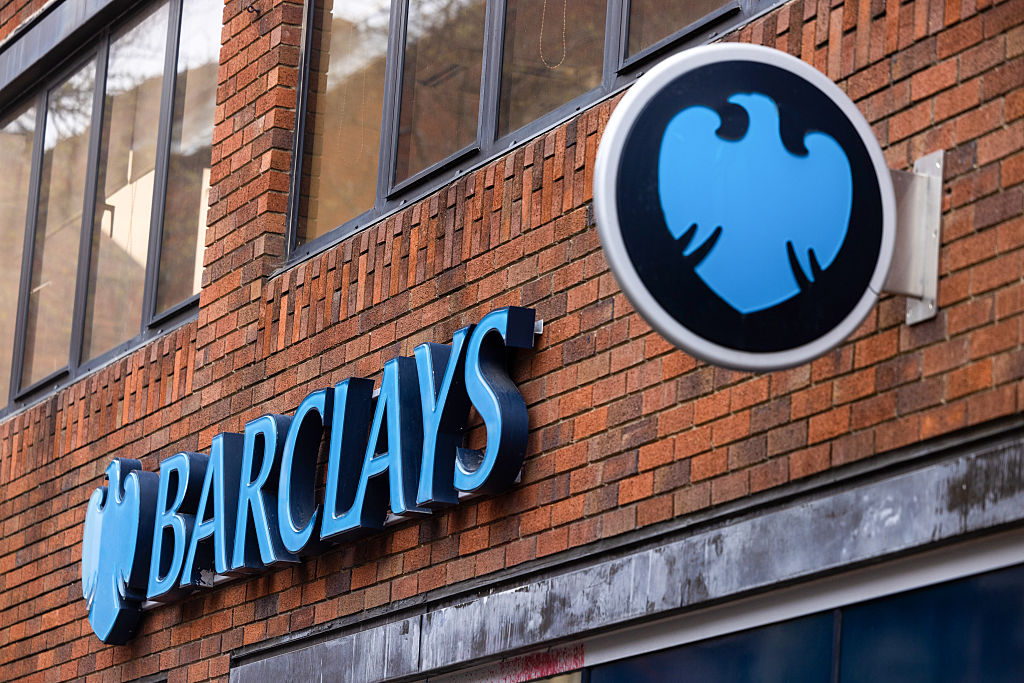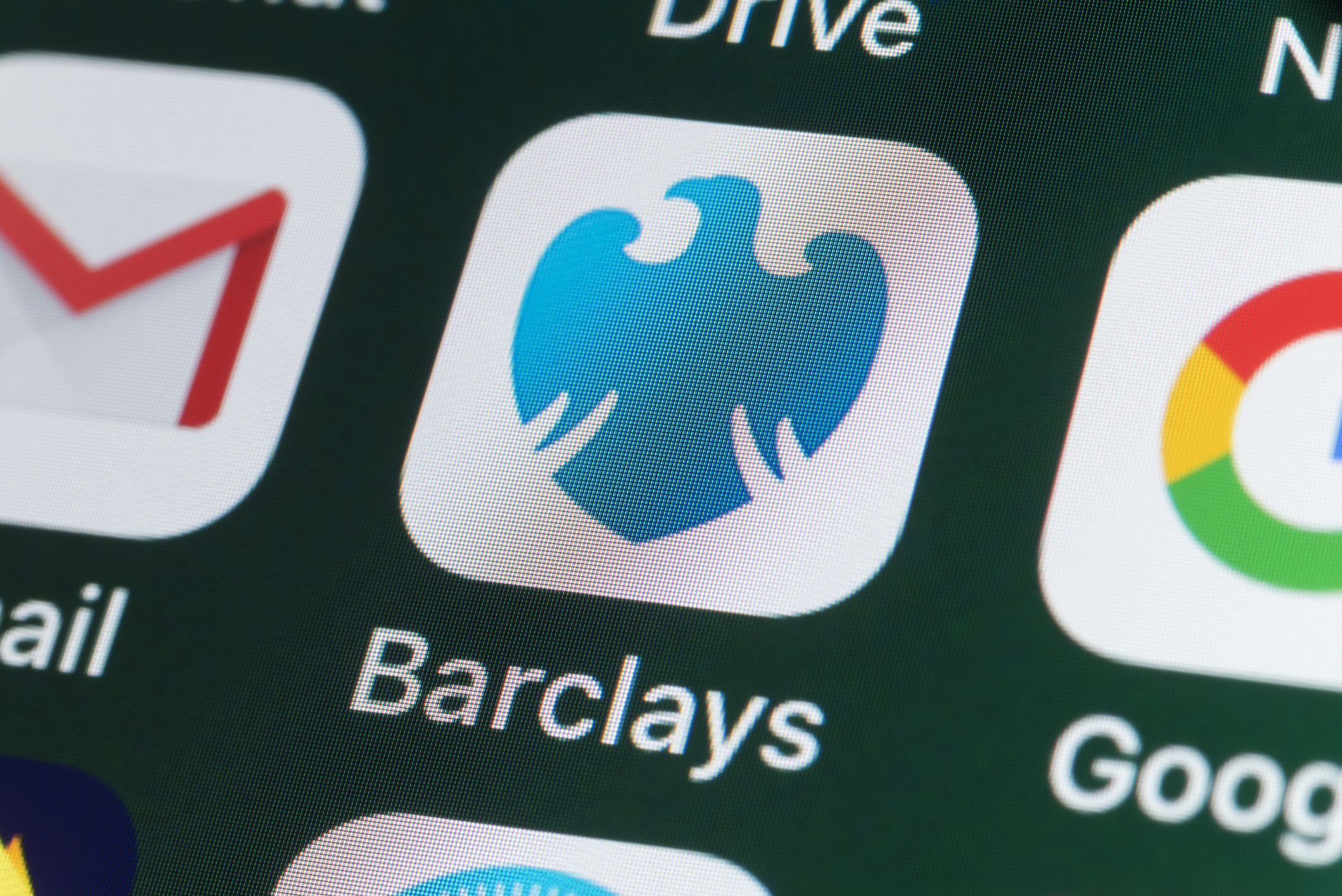Barclays stockbroking: not so smart
Barclays has managed to infuriate thousands of its customers with the launch of its new stockbroking service. Here's what to do it if affects you.

Get the latest financial news, insights and expert analysis from our award-winning MoneyWeek team, to help you understand what really matters when it comes to your finances.
You are now subscribed
Your newsletter sign-up was successful
Want to add more newsletters?

Twice daily
MoneyWeek
Get the latest financial news, insights and expert analysis from our award-winning MoneyWeek team, to help you understand what really matters when it comes to your finances.

Four times a week
Look After My Bills
Sign up to our free money-saving newsletter, filled with the latest news and expert advice to help you find the best tips and deals for managing your bills. Start saving today!

Barclays has managed to infuriate thousands of its customers with the launch of its new stockbroking service. The bank moved 200,000 customer accounts onto its new Smart Investor platform in August, but as many as 4,000 customers have had to ask for their login details to be reissued, as they haven't been able to log on to the service. When people tried to call the Barclays helpline, they found themselves in queues that lasted for up to two hours, and the bank's "Live Chat" service has been derided as being "utterly useless".
In an effort to resolve the problem, Barclays has doubled the number of people answering the helpline and offered to charge customers the equivalent of online trading fees if they want to make telephone trades while they can't access their online account. But even if you have managed to log in, you may still be unhappy. In an effort to simplify the site and appeal to beginners, Barclays has removed many of the features that active share dealers value, such as live intraday stock pricing, the ability to search via tickers and the option to change stop-loss orders. Customers can also no longer trade in overseas shares or covered warrants (a type of derivative).
Finally, Barclays has also upped the cost for many clients. On the old site, you paid a flat fee of £36 a year to hold shares, with dealing charges on top of that. Now you pay a percentage fee based on the value of your portfolio 0.1% on shares and 0.2% on funds, with a minimum of £48 per year. Dealing charges are still levied on top, but these have been reduced. Again, this is geared towards people with smaller portfolios, but those with large balances will feel the sting. For example, someone with a £200,000 share portfolio who trades once a month will now pay £272 a year, almost £100 more than before. Below, we look at what to do if you're fed up with Barclays' new offering.
MoneyWeek
Subscribe to MoneyWeek today and get your first six magazine issues absolutely FREE

Sign up to Money Morning
Don't miss the latest investment and personal finances news, market analysis, plus money-saving tips with our free twice-daily newsletter
Don't miss the latest investment and personal finances news, market analysis, plus money-saving tips with our free twice-daily newsletter
What to do if you want to switch providers
If you are having problems, your first port of call should be Barclays. You shouldn't face major problems getting through now that the bank has added plenty of staff to its call centres call 0800-279 3667. Some customers are even trying to form a group and launch a joint legal action against Barclays, according to Citywire. But a cheaper option, if you feel you have suffered financially, is to place a complaint with the Financial Ombudsman by calling 0800-023 4567. If your complaint is upheld you may be compensated, but you must have raised your problem directly with Barclays first.
Finally, if you are looking for another online broker, you could consider moving to rivals such as AJ Bell Youinvest, Charles Stanley Direct, Hargreaves Lansdown, Interactive Investor, Selftrade or the Share Centre. Investors with large portfolios are especially likely to save by jumping ship someone making 12 trades a year on a £250,000 portfolio would save £150 a year by moving from Barclays to AJ Bell Youinvest, Hargreaves Lansdown or Interactive Investor, estimates consultancy firm The Lang Cat. AJ Bell Youinvest says it has already seen significant increases in the number of people transferring over from Barclays since the latter's new site was launched.
In the news...
If you're due to fly back after then, check if you're covered by the Air Travel Organiser's Licence (Atol). Package holidays booked directly with Monarch Holidays are Atol protected, so a full refund will be issued. If you booked a Monarch flight on or before 14 December 2016 you should be covered, too. However, if you bought your flight after that date, you won't be protected by Atol you'll have to book your own flight home and then try and make a claim from your credit-card firm under Section 75 of the Consumer Credit Act, via your travel insurer or Paypal. Finally, if you paid on a debit card, try asking for chargeback this is where the issuer reclaims money from the retailer's bank. This is a customer service promise rather than a legal requirement, but it's still worth a try.
Price-comparison sites are meant to make life simpler and cheaper, but using the wrong one could mean you pay way over the odds, reports the Financial Times. The Competition and Markets Authority is currently investigating whether Compare the Market is striking deals with home insurers to prevent them from selling cover more cheaply elsewhere but the "most shocking thing" in its wider report is that many consumers believe these sites are "unbiased and run for their benefit". They're not. Their services are free because they charge commission to suppliers when we sign up via their platform. Ultimately, the fortunes spent by price-comparison sites on marketing and commission payments gets passed on to consumers in the form of higher prices. It would make more sense to simply reward customer loyalty.
Get the latest financial news, insights and expert analysis from our award-winning MoneyWeek team, to help you understand what really matters when it comes to your finances.

Ruth Jackson-Kirby is a freelance personal finance journalist with 17 years’ experience, writing about everything from savings accounts and credit cards to pensions, property and pet insurance.
-
 Inheritance tax investigations net HMRC an extra £246m from bereaved families
Inheritance tax investigations net HMRC an extra £246m from bereaved familiesHMRC embarked on almost 4,000 probes into unpaid inheritance tax in the year to last April, new figures show, in an increasingly tough crackdown on families it thinks have tried to evade their full bill
-
 Average UK house price reaches £300,000 for first time, Halifax says
Average UK house price reaches £300,000 for first time, Halifax saysWhile the average house price has topped £300k, regional disparities still remain, Halifax finds.
-
 Nationwide promises to protect all its branches from closures until at least 2030
Nationwide promises to protect all its branches from closures until at least 2030The building society has extended its pledge to keep all high street Nationwide and Virgin Money branches open, now until at least 2030.
-
 Barclays bank switch: how to get £400 'free' cash by moving accounts
Barclays bank switch: how to get £400 'free' cash by moving accountsBarclays has unveiled a £400 current account switching offer, running alongside its £500 ISA transfer deal. Which accounts are on offer, and are you eligible?
-
 Green mortgages: how do they work and how much can you save?
Green mortgages: how do they work and how much can you save?Most high-street lenders now offer some kind of green mortgage deal. We look at who’s eligible, how to apply and the mortgage rates and cashback on offer
-
 Thousands of Brits switch to Nationwide, Monzo and NatWest – which banks are least popular?
Thousands of Brits switch to Nationwide, Monzo and NatWest – which banks are least popular?We look at the most and least popular banks and building societies as current account bank switches reach a record high. Is it worth moving your money?
-
 Barclays to pay millions in compensation after IT outage chaos
Barclays to pay millions in compensation after IT outage chaosBarclays intends to compensate customers after an IT outage caused payment problems for three days
-
 Barclays reports large spike in romance scams - here's how to avoid them
Barclays reports large spike in romance scams - here's how to avoid themThe UK bank found a 139% increase in the total value of romance scams
-
 Nationwide, HSBC, Barclays and Virgin Money customers hit by payment issues
Nationwide, HSBC, Barclays and Virgin Money customers hit by payment issuesThe problems have been compounded as Friday is the last day of the month when many people are paid by their employer
-
 Best and worst UK banks revealed
Best and worst UK banks revealedWe reveal the best UK banks – and the worst – when it comes to managing your money and good customer service. How does your provider compare?